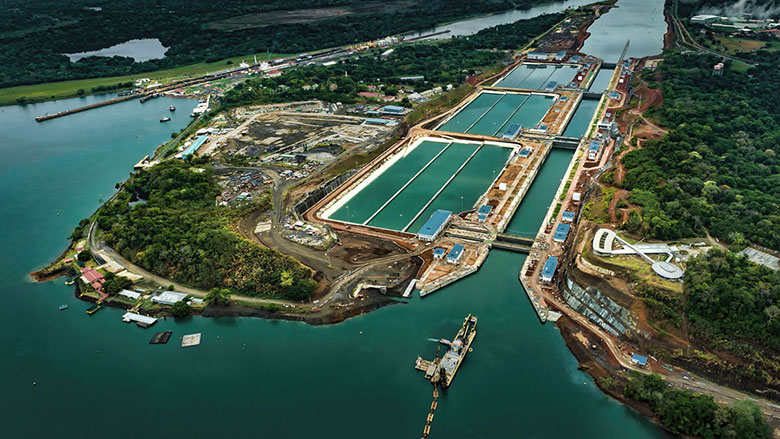
US, Panama sign canal security pact to counter China as base proposal rejected
WASINGTON D.C. : The United States and Panama have signed a new defence and security pact to boost cooperation around the Panama Canal — a move US Defence Secretary Pete Hegseth called vital to countering China’s growing influence. However, Panama swiftly rejected Hegseth’s separate proposal to revive US military bases in the country.
The joint declaration, signed by Panama’s Minister for Canal Affairs and Hegseth, reaffirms Panamanian sovereignty over the interoceanic waterway while laying the groundwork for enhanced military coordination. “Efforts will be made [to] develop a mechanism which will allow compensation for services provided to warships and auxiliary vessels, seeking a cost-neutral basis,” read a statement from the Panama Canal Authority, posted Wednesday night on X.
According to Hegseth, the deal is a step toward a broader framework that would guarantee US Navy vessels “first and free” passage through the canal. The Defence Secretary confirmed that a memorandum of understanding has already been signed and that a final agreement is expected soon. The Canal Authority described the declaration as “a first step” toward a more detailed cost-sharing model.
The agreement comes amid a renewed push by Washington to counter Chinese economic and logistical influence in Latin America. Hegseth warned that Beijing’s presence in the Western Hemisphere “is already too big, and still growing.” The USNS Comfort, a Navy hospital ship, is also being deployed to the region in what officials call a demonstration of commitment to regional stability and partnership.
Yet, while the US moves forward with military collaboration in engineering, security, and cybersecurity, its ambitions for a more direct physical presence hit a wall.
During his visit earlier this week, Hegseth floated the idea of re-establishing US military installations in Panama, suggesting rotational deployments “by invitation.” The proposal was quickly rebuffed by Panama’s government, which has remained firm on its position that the canal — and the territory surrounding it — must remain under national control. The idea of a revived base presence was particularly controversial given the historic sensitivity: the United States invaded Panama in 1989, ending the rule of dictator Manuel Noriega.
Hegseth’s suggestion also follows President Donald Trump’s criticism that US ships were “severely overcharged and not treated fairly in any way, shape or form” when using the canal. Since taking office, Trump has repeatedly accused China of wielding excessive control over the key shipping route, which handles roughly 40% of US container traffic and about 5% of global trade.
The Pentagon chief’s two-day visit has been peppered with comments about China and its influence in Latin America.
He stated that the United States is not looking for war with China, but will counter Beijing’s “threats” to the region.
“We do not seek war with China. And war with China is certainly not inevitable. We do not seek it in any form,” the secretary said.
“But together, we must prevent war by robustly and vigorously deterring China’s threats in this hemisphere,” the former Fox News anchor said in a speech.
The canal is run by an independent Panamanian authority and is legally bound to be open to all nations.
But Trump has zeroed in on the role of a Hong Kong company that has for decades operated ports at either end of the canal linking the Atlantic and Pacific.
Hegseth asserted that China-based companies are also capturing Latin American land and infrastructure in strategic sectors like energy and telecommunications, and that China has too large a military presence in the hemisphere.
“Make no mistake, Beijing is investing and operating in this region for military advantage and unfair economic gain,” Hegseth said.
Under pressure from the White House, Panama has accused Hong Kong-backed Panama Ports Company of failing to meet its contractual obligations and pushed for the firm to pull out of the country.
On Wednesday the firm rejected an audit that said it had failed to pay $1.2 billion due under its concession.
The ports’ parent company CK Hutchison last month announced a deal to offload 43 ports in 23 countries — including its two on the Panama Canal — to a consortium led by US asset manager BlackRock for $19 billion in cash.
A furious Beijing has since announced an antitrust review of the deal.
The United States invaded Panama in 1989 to oust dictator Manuel Noriega, killing more than 500 Panamanians and razing parts of the capital.
Source : Money Control

